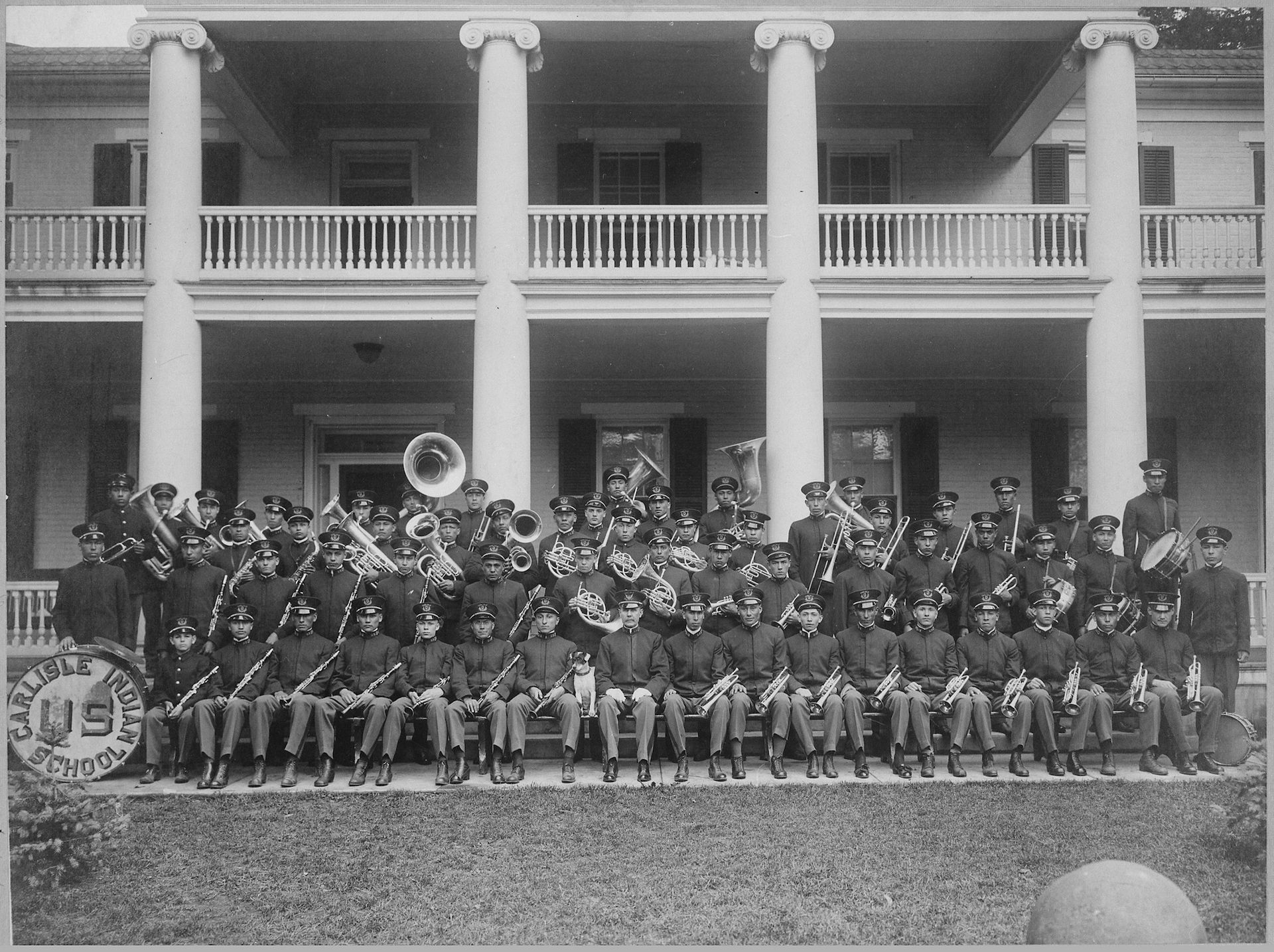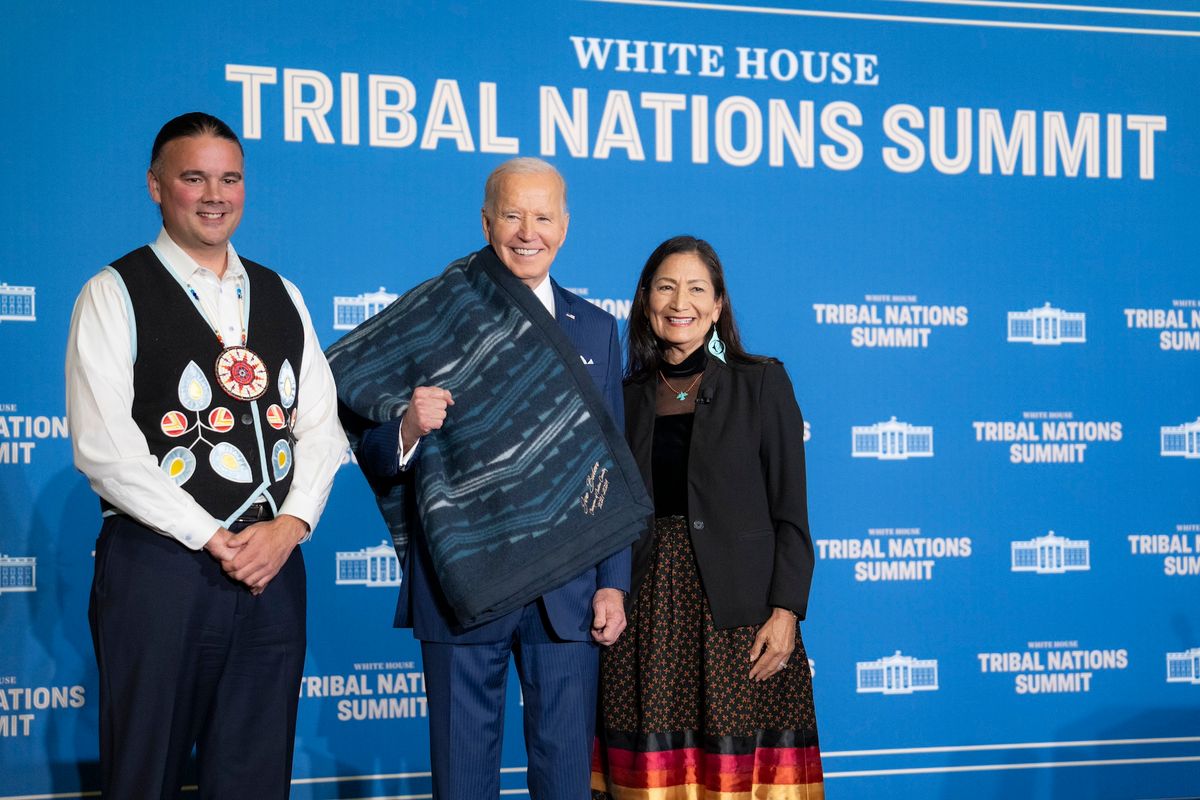During a Tribal Nations Summit at the Department of the Interior in Washington, DC, on Monday (9 December), US President Joe Biden established a national monument to honour the thousands of Indigenous children who were taken from their parents and communities, stripped of their language and culture, and forcibly assimilated—and often abused—from the early 19th century to the middle of the 20th century at more than 400 schools across the country.
The monument will be situated at the former Carlisle Indian Industrial School in Carlisle, Pennsylvania, which around 7,800 Indigenous children from more than 140 tribes passed through between its founding in 1879 and shuttering in 1918—though similar, federally subsidised boarding schools remained in operation until the 1960s. Officially dubbed the Carlisle Federal Indian Boarding School National Monument, the 24.5-acre site will be managed by the National Park Service and the US army (it sits within an active military site, the Carlisle Barracks).

The Carlisle Indian School Band in 1915, photographer unknown National Archives at College Park, Department of the Interior, Office of Indian Affairs
“Designating the former campus of the Carlisle School, with boundaries consistent with the National Historic Landmark, as a national monument will help ensure this shameful chapter of American history is never forgotten or repeated,” Biden said in his proclamation.
In all, more than 180 children died at the Carlisle Indian Industrial School during its 39 years in operation, and many of their remains are still interred at the site. Through the army’s ongoing Carlisle Barracks Disinterment Program, the remains of 41 children have been returned to their families.
In all, at least 973 American Indian, Alaska Native and Native Hawaiian children died in the so-called “federal Indian boarding school system” between 1819 and 1969, according to a report by the Bureau of Indian Affairs released this past summer. The report also found that the US government subsidised the schools (many of which were operated by private or religious organisations) to a value equivalent to $23bn in today’s dollars. The report called for a formal apology, among other responses, from the federal government. In October, during a visit to the Gila River Indian Community in Arizona, Biden apologised for the boarding schools, calling the period “one of the most horrific chapters in American history”. (To some in the Indigenous community the apology, delivered two weeks before the election, came off as politically motivated.)
Secretary of the Interior Deb Haaland, whose great grandfather and grandparents were forcibly taken to boarding schools as children, said at the ceremony on Monday that the national monument declaration is a meaningful step but that more will be needed to rectify the trauma and pain inflicted by the boarding school system.
“No single action by the federal government can adequately reconcile the trauma and ongoing harms from the federal Indian boarding school era. But, taken together, the Biden-Harris administration’s efforts to acknowledge and redress the legacy of the assimilation policy have made an enduring difference for Indian Country,” Haaland said. “Through the National Park Service—America's storyteller—people can now learn more about the intergenerational impacts of these policies as we, as a nation, continue to take steps to heal from them.”


